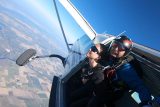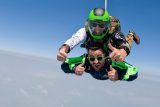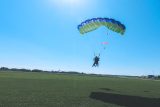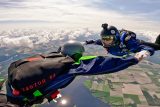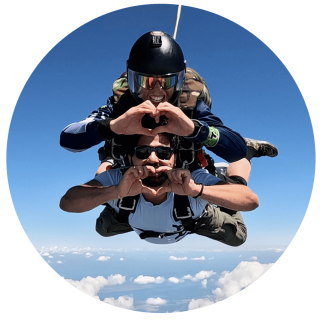Can I SCUBA Dive and Skydive on the Same Day?
DZ News
Posted by: Parachute Ottawa
1 year ago
If you’re thinking about going skydiving, that probably means you enjoy a bit of extra adventure in your life in general. Extreme sport enthusiasts rarely partake in just one adventure at a time. SCUBA diving and skydiving are two of the most popular extreme sports out there, and the vibes of each complement each other nicely. But can you skydive and SCUBA dive in the same day?
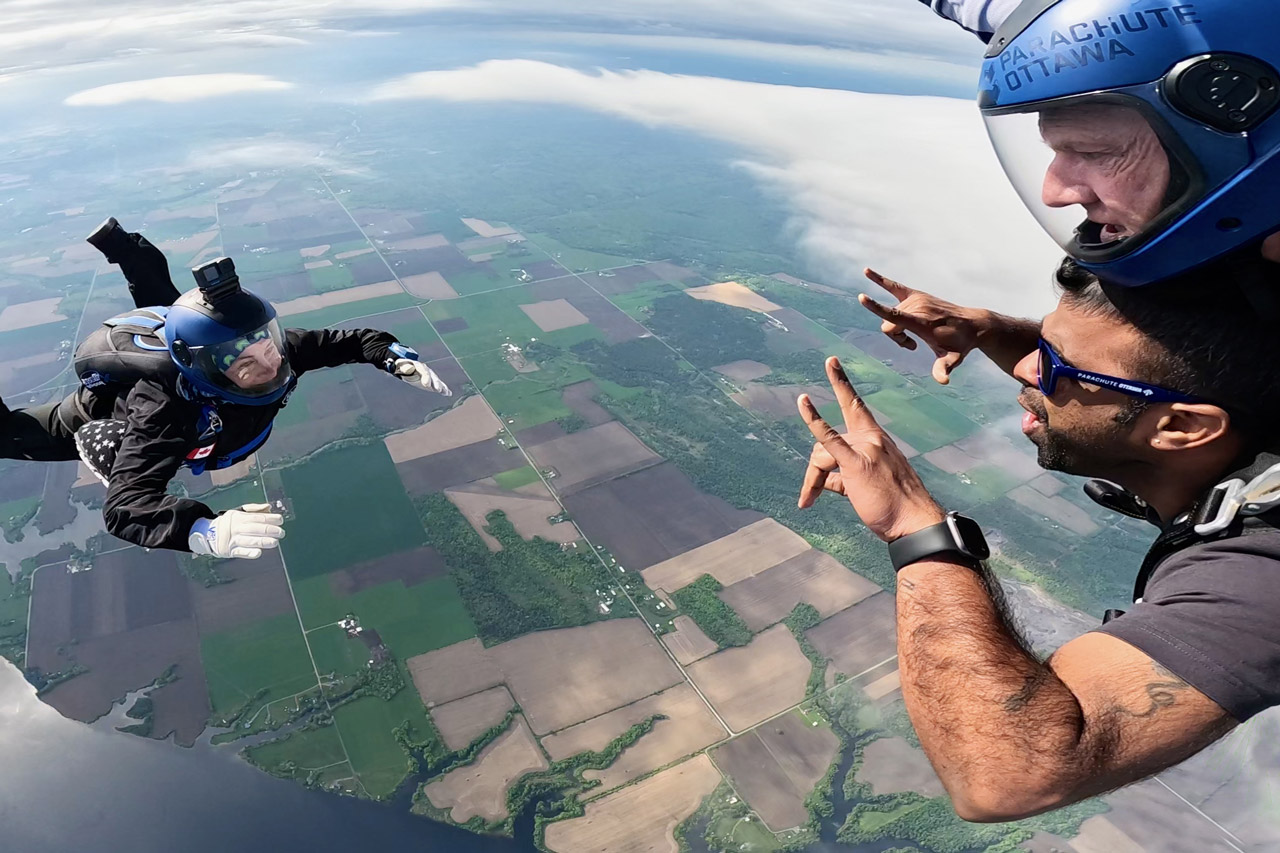
Well, that depends on the order you plan to do them in. Skydiving after SCUBA diving is a bad idea, but flip that around and all of a sudden you have plans for the best day ever! There’s a lot to consider when participating in even just one extreme sport, so make sure you do your research if you start adding activities to that list.
This article will cover some things you might want to think about before committing to too many diving adventures in one day, and we’ll go over safety considerations to take into account when trying to manage skydiving and SCUBA diving in the same day.
Safety Considerations
Extreme sports come with extreme safety precautions. There’s a reason these adventure activities have been labeled with the superlative extreme. A lot of training and research goes into both skydiving and SCUBA diving. There are entire industries built on developing ever evolving knowledge and methods for both sports.
And it’s not just trial and error. Science is a big part of understanding the best way to engage in these higher risk activities. Physics, biology, and chemistry all come into play when making decisions about how certain things should be done.
Research (and unfortunate experiences) have shown us that it is absolutely not safe to fly within a certain time frame after SCUBA diving. The reason for this is to avoid suffering decompression sickness: a condition that causes nitrogen bubbles to form in the tissues of the body. It is suffered particularly by divers (who often call it the bends ), and can cause pain in the muscles and joints, cramps, numbness, nausea, and paralysis.
While the guidelines vary from entity to entity, the one thing that’s agreed upon is that you should indeed wait. The Divers Alert Network (DAN), an oversight organization similar to the Canadian Sport Parachuting Association (CSPA), suggests these waiting periods for sport dives followed by flights at cabin altitudes of 2,000 to 8,000 feet:
- A minimum of a 12 hour surface interval is suggested before flying after a single, no-decompression dive
- A minimum of an 18 hour surface interval is suggested before flying after multiple no-decompression dives in one day or multiple days of diving
- Longer than an 18 hour surface interval is suggested before flying after dives requiring decompression stops, though there is little published evidence on which this recommendation is based. This one is more about playing it safe.
As you can see, there’s not enough time in the day to go skydiving after SCUBA diving. And, as much as we love skydiving, it’s not worth pushing it and potentially ending up in the hospital with the bends.
If you have any questions at all about your plans, feel free to reach out and talk them through with us!
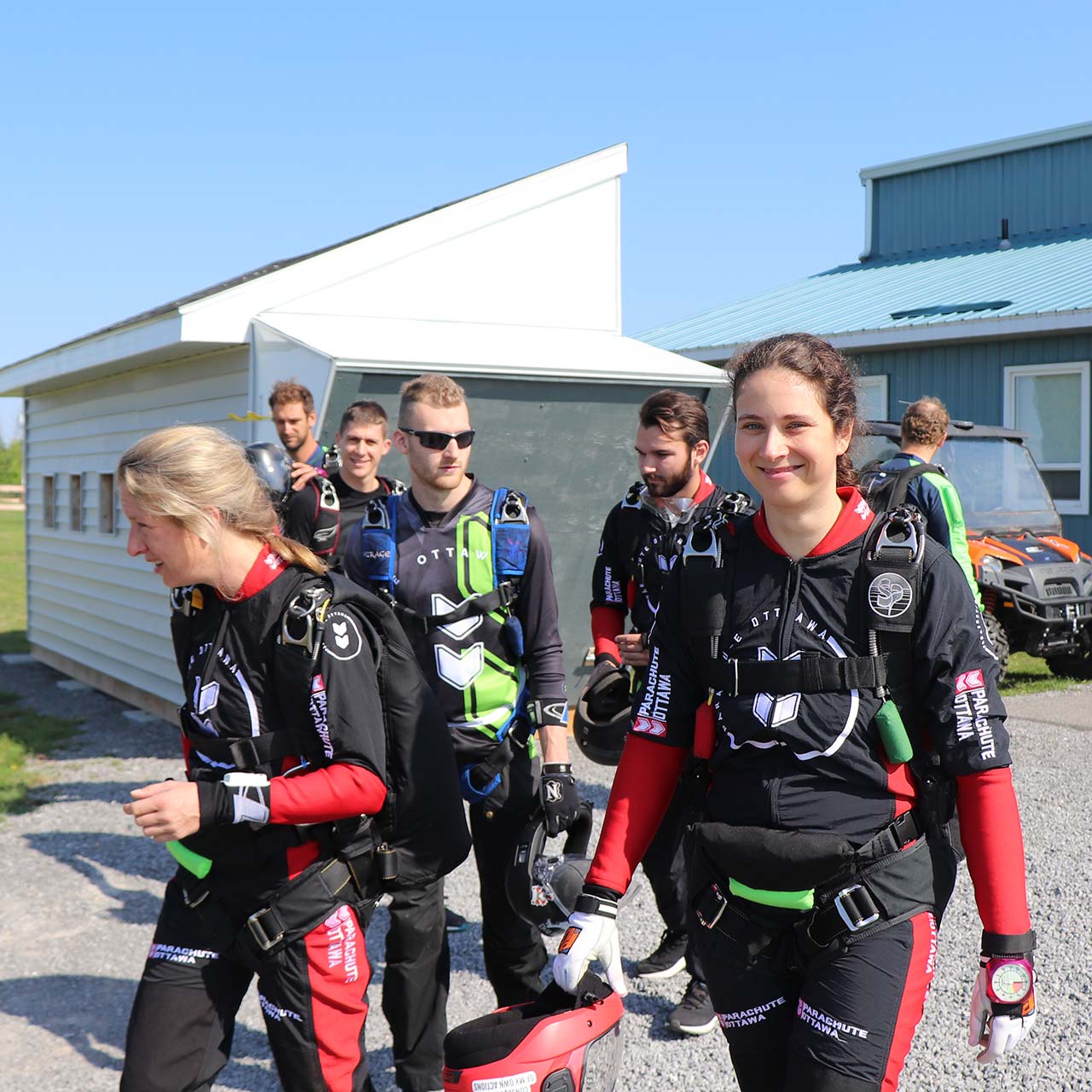
Physical Exertion
Even if you are planning on skydiving and SCUBA diving in the correct order, there are still some things you’ll want to think about before booking your all-out-adventure. Sure, on paper, exploring the highest heights of the sky and the deepest depths of the ocean all in one day sounds like an adventure for the gods. But we do live in human bodies.
Skydiving, especially for the first time, is a physical activity that requires a fair amount of exertion. Carrying gear, moving around in the airplane, staying stable in freefall, and steering/landing the parachute all take strength and effort for experienced skydivers. Even on a tandem skydive, you’re an active participant and will use your body in ways you might not typically be used to.
And that’s not even taking into account the mental fatigue that occurs from managing anxiety and extreme focus involved with going skydiving. SCUBA diving might not be the most appealing prospect after going through everything that skydiving entails.
Diving in the water requires at least as much physical aptitude as diving in the air, as there’s heavy gear to lug around, swimming and kicking to do, and oxygen management to worry about. There’s also plenty of mental stress and anxiety involved in SCUBA diving.
Having enough physical energy to enjoy yourself aside, consider the full mental awareness that’s required for both extreme sports. Maintaining hyper-focus is hard when you’re drained from already having a once-in-a-lifetime experience that same day.
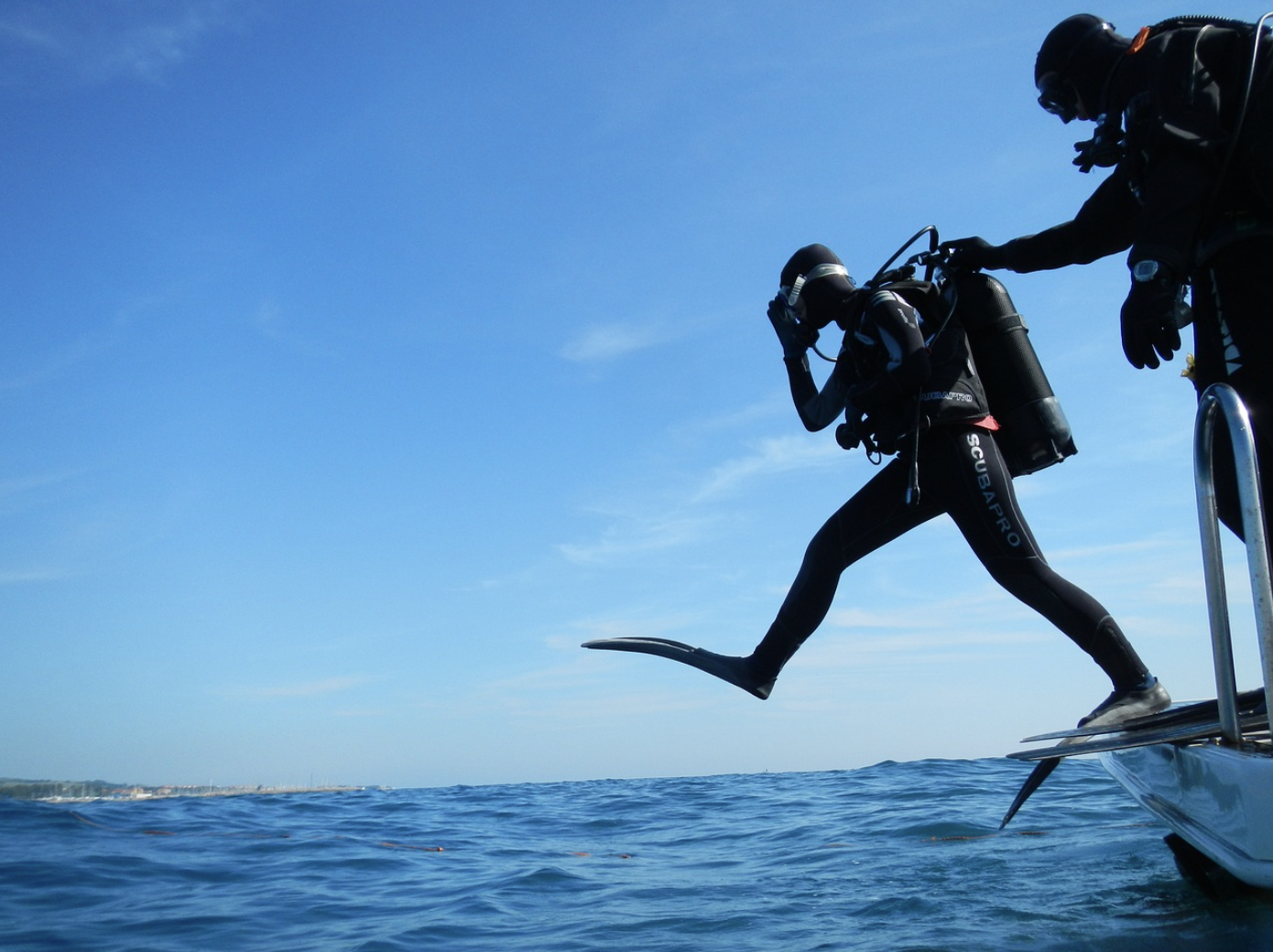
Time Constraints
There’s also the matter of having enough time. The best adventures are the ones that last, both in memory and in duration. Extreme sports are all about being present in the moment.
Adventure athletes aim to live life to the fullest and enjoy being in the here and now. You don’t want to be in the middle of your skydive worrying about being done early enough to catch a boat later that day.
And while the skydive itself may only last 15 minutes, there’s a lot more involved in the process of skydiving than a quick drop out of the sky. You should plan to be at the dropzone for around half the day when you arrive for your tandem jump. Skydiving isn’t a carnival ride, and preparing for the jump is just as important as the skydive itself.
You’ll need to check in, sign a waiver, meet your tandem instructor, complete training, and get geared up all before even thinking about getting into the airplane. The ride to altitude takes about 20 minutes, and debriefing after the jump isn’t exactly something you want to rush, either. All of these things are a part of the experience! You want to relish in every step so that you can relive the memory forever.
Another thing to consider is weather. These timeframes are how things go if the weather is perfect. But skydiving is an outdoor sport, and Mother Nature doesn’t always cooperate. Which means your jump could be delayed or even rescheduled.
And SCUBA diving has its own process much like the one you’ll experience when you go skydiving! Now imagine trying to fit both of those things into one day. It’s starting to sound like less of a good time, isn’t it? You’re better off focusing on one adventure at a time so that you can get the very most out of every experience.
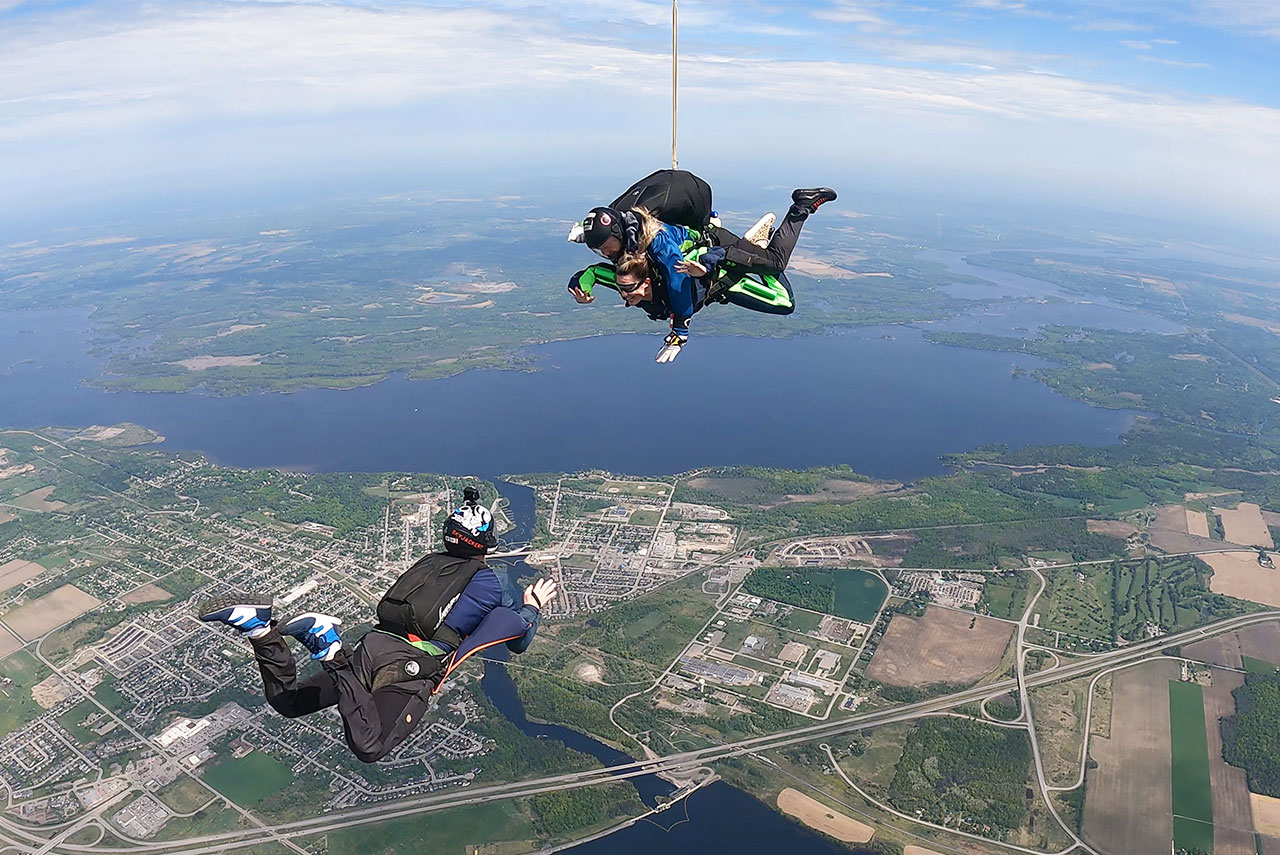
Making the Sea and Sky Work for You
But don’t fret! You don’t have to completely change your vacation plans or cancel half of your adventure just because it’s not the best idea to do them on the same day. You can have two amazing days instead of just one!
Organize a whole day of skydiving fun, and an entire day to play at the bottom of the sea. Or vice versa. If you’re doing them on separate days, it doesn’t matter which order they happen in (as long as there’s enough time between them to adhere to the DAN guidelines). You can even extend your adventure and do multiple days of each for the MOST extreme experience.
So get your plans and your friends together, book your jump, and get ready to see the world from all angles! Blue skies!
